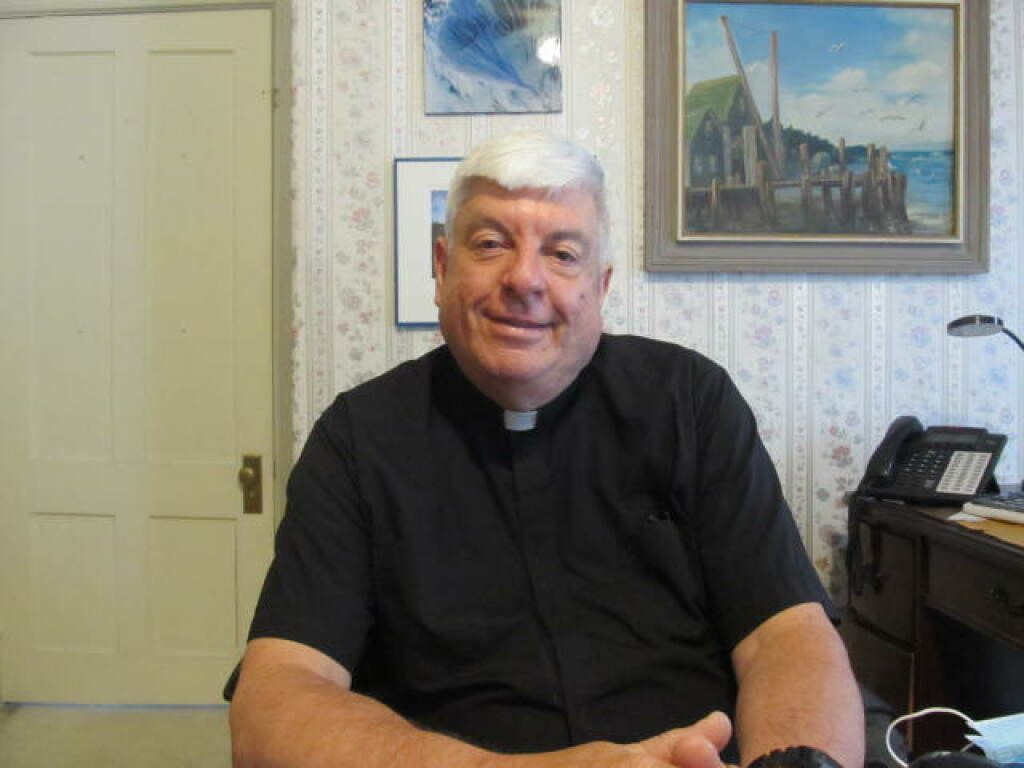 And who is my neighbor?
And who is my neighbor?
There is a story told about the late Sam Rayburn, a former Speaker of the House of Representatives. The daughter of one of his friends was critically injured in a car accident. Early the next morning Mr. Rayburn knocked on his friend’s front door. He said, “I just came by to see what I could do to help.” The father replied that there was nothing to do.
“Well,” Rayburn said, “have you had your morning coffee yet?” The man said that they had not taken time for breakfast. While Rayburn was working in the kitchen, his friend came in and asked, “Mr. Speaker, I thought you were supposed to be having breakfast at the White House this morning?” “I was,” said Rayburn, “but I called the President and told him I had a friend who was in need and that I couldn’t come to the White House.”
I refer to this story because of Jesus’ story—the well-known parable of the Good Samaritan. I always wondered why the priest and the Levite never stopped to help the man beaten and left to die in the ditch. Where was their humanity? Of course, scripture scholars have some theories. Some, for example, have argued that, as religious figures on their way to Jerusalem, they probably had religious duties to attend to in the temple. Coming into contact with blood, or a dead person, would have made them ritually impure, unable to perform their religious duties. I recently read a theory that because the man who was robbed and beaten probably had his clothing stolen, and probably was lying face down in the ditch. So, those passing by would not have known if he were a fellow Jew or a foreigner. They would have felt more obligated to help a member of their own tribe than someone outside their community, whether that be socially, ethnically or religiously.
This approach is what the religious scholar, or lawyer, was trying to get at. Who is my neighbor that I am required to love? And the flip-side of that question: whom am I allowed not to love? And the irony is that the hero of Jesus’ story is precisely a person who is an enemy, both politically and religiously—a despised Samaritan who would not have been considered a neighbor by most Jewish people of that time. I wanted to present an image that would capture the shock of Jesus’ presentation of this unlikely hero, and so I offer this imagery, which probably over-states the point, but offers understanding nonetheless.
A man was robbed and beaten, left along the side of the road in a bloody mess. George Washington happened to be going that way, but when he saw the man, he went to the opposite side and continued walking. Then, Abraham Lincoln came by, but he did the same. Finally, Adolf Hitler came along in his jeep. He felt pity for the man lying in the road, nursed his wounds, took him into his jeep and brought him to an inn, paying for his care.
As I said, this probably over-states the point, but it captures the surprise Jesus’ audience would have experienced.
How ironic, then, that the one despised and looked down upon makes Jesus’ point. The Samaritan transcended the boundaries of prejudice, bigotry and hatred, and by his actions showed that everyone was his neighbor—even the Jews who hated him. His compassion allowed him to see beyond prejudice and to build a bridge of love to this neighbor, who—regardless of his ethnic, political or religious views—saw a fellow human being in need and showed love for him in a very concrete way.
So, the whole point of the gospel story is to ask us whom we are like—the religious scholar or Jesus. In other words, do I want a pared down, comfortable definition of neighbor as one who looks, thinks and acts pretty much as I do, or does my definition of neighbor break down the boundaries of political, cultural and racial exclusion so that I can be a neighbor even to those whom I find it most difficult to love?
You might also like
Father's Homilies




